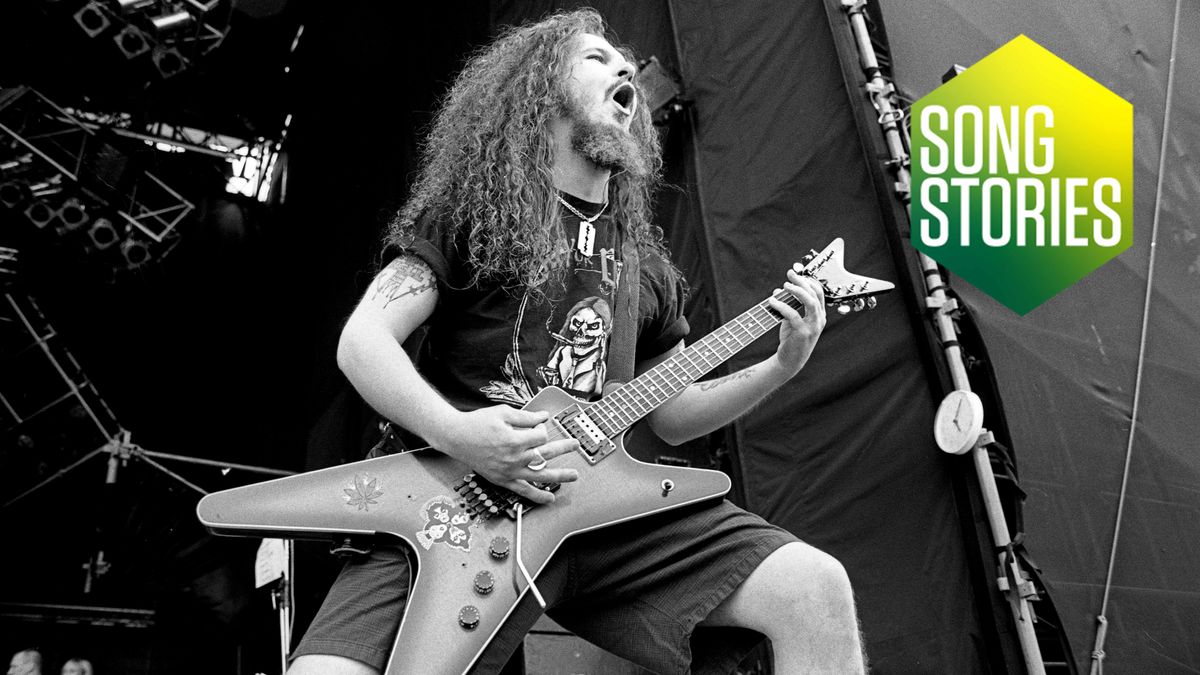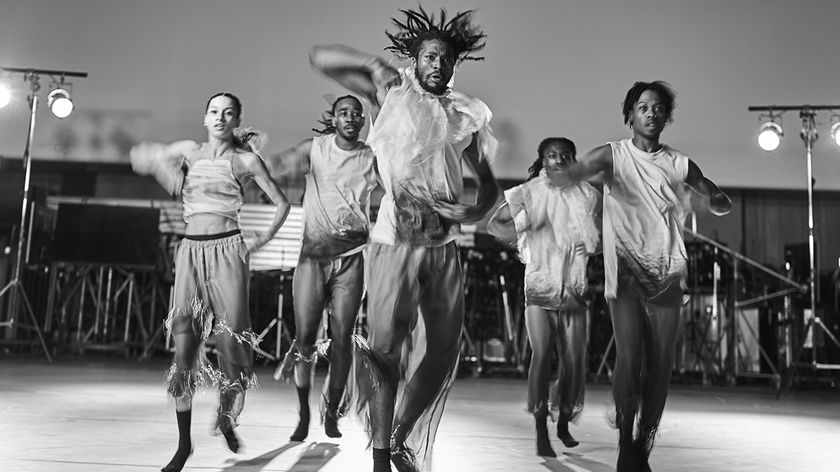Dimebag Darrell and the brilliance of Pantera's This Love
The band's slow-dancing Jekyll and Hyde anthem was their vulgar display of power ballad

Pantera's fifth studio album, Cowboys From Hell, saw the Arlington, Texas metal crew shed the hair metal cocoon for a sound with more muscle on the bones. But it was its successor that just outright defined them. For a band whose métier was hitherto an under-appreciated stew of Judas Priest and KISS, Cowboys From Hell was such a huge stylistic shift that many erroneously thought it was the band’s debut – that, completists, was 1983’s crude Metal Magic.
But those who just started counting with Cowboys… could be forgiven, because Pantera v2.0 was an unrecognisable beast, one that would become a from-the-gut paradigm-shifter, sculpting metal’s topography with bruising riffs that moved in off-kilter rhythms no-one had really heard before. The likes of Primal Concrete Sledge, Domination and the two-octave riff-slam of the title track had a groove that was alien to metal’s rigid structure.
In vocalist Philip Anselmo, Pantera had a super-aggressive focal point, under which Darrell Lance Abbott – then credited as Diamond Darrell, but commonly and forever referred to as Dimebag – could work on twisting metal riffs into weird percussive salvos. By the time 1992 swung around, Pantera had made a habit of rendering their back catalogue obsolete: Vulgar Display Of Power was their perfect storm.
Recorded at Pantego Sound Studios, Texas, with Cowboys… producer Terry Date and drummer Vinnie Paul (Dimebag’s older brother), Vulgar… was an in-and-out job, written and recorded in weeks, not months, losing none of the energy nor invective en route from rehearsal space to tape.
Dimebag and Vinnie Paul’s father, country singer-songwriter Jerry Abbott, owned Pantego Sound. But as Dimebag recalled in ’94 to Guitar World, his father was not a fan of Pantera indulging their more extreme mores. “It’s funny, he still doesn’t really understand what we do,” said Dimebag. “When he heard F***ing Hostile on Vulgar Display Of Power, he absolutely freaked! He told me, ‘Son, people are going to think somethin’ is wrong with the record and take it back’.” With over two million sales (and counting) in the US alone, that’s a lot of refunds.
Vulgar… was leaner, sharper, and more focused than anything Pantera had written before. The pugnacious Mouth For War, chromatic grind of A New Level and the 12/8 shuffle of the polemic Walk was a formidable opening trifecta. F***ing Hostile jammed the tempo into the red, ending in a squall of invective and mic feedback.
As a band who sequenced their albums with the old-school side-A/side-B logic in mind, they closed side-A out with the darkest song on the record, and arguably of their career: This Love.
Get the MusicRadar Newsletter
Want all the hottest music and gear news, reviews, deals, features and more, direct to your inbox? Sign up here.
This Love’s solo ranks beside that of Floods from The Great Southern Trendkill in terms of musicality and feel
This Love slows everything down, killing the mood with haunting clean arpeggios, before building to a savage staccato chorus. As an exercise in tension and release in metal songwriting it is pretty much unimpeachable, and it showcases everything Dime had in his locker.
This Love’s solo ranks beside that of Floods from The Great Southern Trendkill in terms of musicality and feel, and as Dime noted in his Riffer Madness column for Guitar World, the outro solo is one of the best examples of his natural harmonic squeals. “There’s a real long, slow one in This Love, which starts at 6:21 [CD time] and runs to the very end of the track. Harmonic screams are my way of ‘singing out’, using my guitar instead of my throat.
"That’s why I really dig this technique," Dime continued. "I stumbled on harmonic squeals when I was dicking around one day. A lot of people think I use a harmonizer or a [DigiTech] Whammy pedal to do them, but I don’t; all I use is my bar and some natural harmonics. To make harmonics scream, I first dump my Floyd Rose real quick, hit a harmonic with my left hand while the string is still flapping, and then use the bar to pull it up to the pitch I wanna hit.”

Such was Dime’s flamboyant individualism, he often left guitarists second-guessing his techniques. He was pretty generous in sharing his approach, be it in guitar clinics or in magazine columns, but kinda coy, too, always encouraging people to get their own tone. His approach, though unorthodox, was always imbued with a sense of pragmatism, from scoring his picks so they gripped better, to his palm muting – the latter was where he got that industrial chug, always mindful that using a Dean ML series with a floating Floyd Rose vibrato meant his palm wasn’t resting on the bridge. Gear-wise he was a one-off, too.
If the ML’s aggressively shaped body was a statement of intent, so too was his reliance throughout his Pantera years on solid state Randalls. At a time when everybody in metal was gravitating towards the Mesa/Boogie Dual- Rectifier, he stuck by the Randall RG100ES heads and cabs, insisting only they gave him enough buzz-saw gain to get the job done.
The mids were scooped out using a Furman PQ3 parametric equalizer, with a pair of Rocktron Hush noise gates to keep his sound in check. Notably on This Love, he used a rackmounted MXR 126 flanger/doubler to achieve that seasick queasiness in the clean rhythm parts, and a Vox wah to add more talk to his solo.
That This Love remained a staple of Pantera’s live set from ’92 till they split was a testimony to its power and its place as an untouchable anthem in their fearsome canon. But it’s also a testament to everything Dime was about as a player – imagination, flair and attitude. Just try nailing the groove on that breakout riff… Yeah, don’t worry: it’ll take more than one take.
Alice In Chains' Jerry Cantrell on Dimebag and Pantera
Jonathan Horsley has been writing about guitars and guitar culture since 2005, playing them since 1990, and regularly contributes to MusicRadar, Total Guitar and Guitar World. He uses Jazz III nylon picks, 10s during the week, 9s at the weekend, and shamefully still struggles with rhythm figure one of Van Halen’s Panama.

How to write a ‘sticky’ hit: Pure luck can put you in the charts, but sticking around to make the big bucks needs pure science

“We had a request from the studio guys: ‘Is it okay if this local church choir comes in to record for a day?’ And thank God we let them in!”: How Def Leppard created a rock anthem - with a little bit of divine intervention










